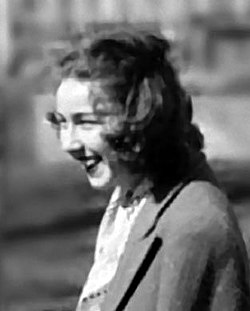Flannery O'Connor Quote
Early in 1955 Flannery completed work on her second book, a collection of these stories which she entitled A Good Man Is Hard to Find. In January we sent it to press, having set publication for June. I remember our amusement at Evelyn Waugh’s reaction to the advance proofs we sent him: If these stories are in fact the work of a young lady, they are indeed remarkable.
Flannery O'Connor
Early in 1955 Flannery completed work on her second book, a collection of these stories which she entitled A Good Man Is Hard to Find. In January we sent it to press, having set publication for June. I remember our amusement at Evelyn Waugh’s reaction to the advance proofs we sent him: If these stories are in fact the work of a young lady, they are indeed remarkable.
Related Quotes
About Flannery O'Connor
Mary Flannery O'Connor (March 25, 1925 – August 3, 1964) was an American novelist, short story writer, and essayist. She wrote two novels and 31 short stories, as well as a number of reviews and commentaries.
O'Connor was a Southern writer who often wrote in a sardonic Southern Gothic style. She relied heavily on regional settings and grotesque characters, often in violent situations. In her writing, an unsentimental acceptance or rejection of the limitations, imperfections or differences of these characters (whether attributed to disability, race, crime, religion or sanity) typically underpins the drama.
O'Connor's writing often reflects her Catholic faith, and frequently examines questions of morality and ethics. Her posthumously compiled Complete Stories won the 1972 U.S. National Book Award for Fiction and has been the subject of enduring praise.
O'Connor was a Southern writer who often wrote in a sardonic Southern Gothic style. She relied heavily on regional settings and grotesque characters, often in violent situations. In her writing, an unsentimental acceptance or rejection of the limitations, imperfections or differences of these characters (whether attributed to disability, race, crime, religion or sanity) typically underpins the drama.
O'Connor's writing often reflects her Catholic faith, and frequently examines questions of morality and ethics. Her posthumously compiled Complete Stories won the 1972 U.S. National Book Award for Fiction and has been the subject of enduring praise.
